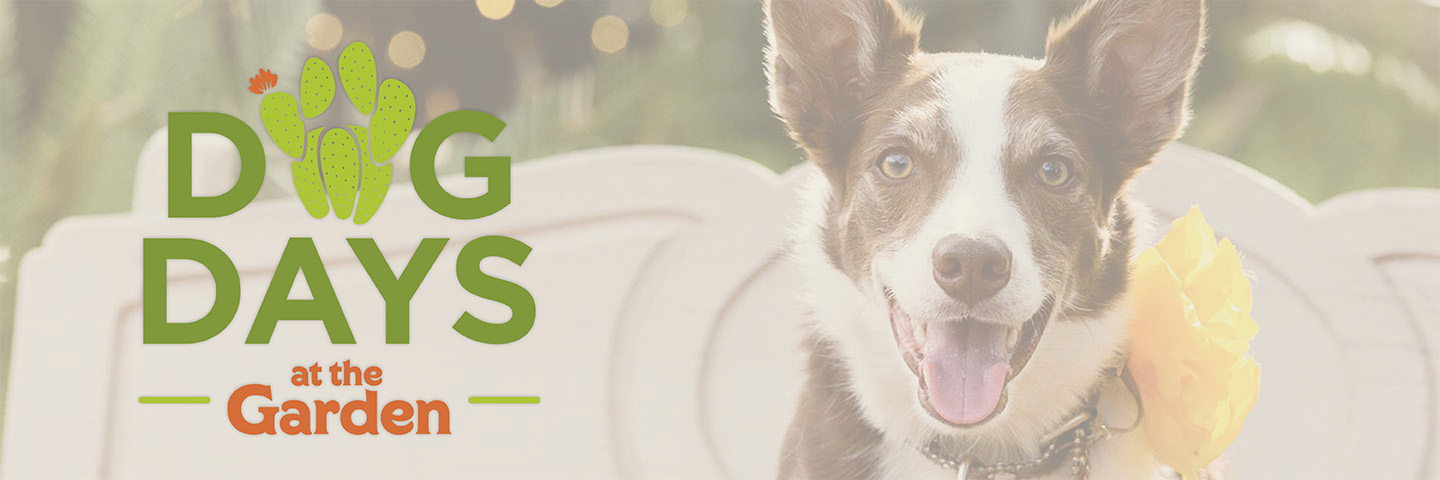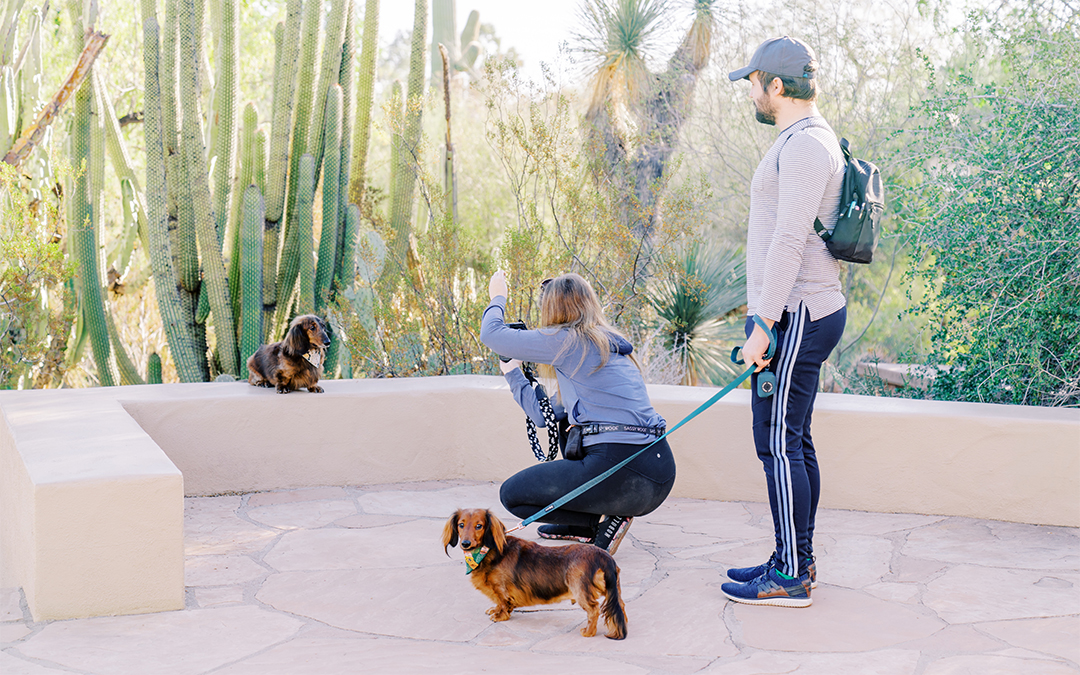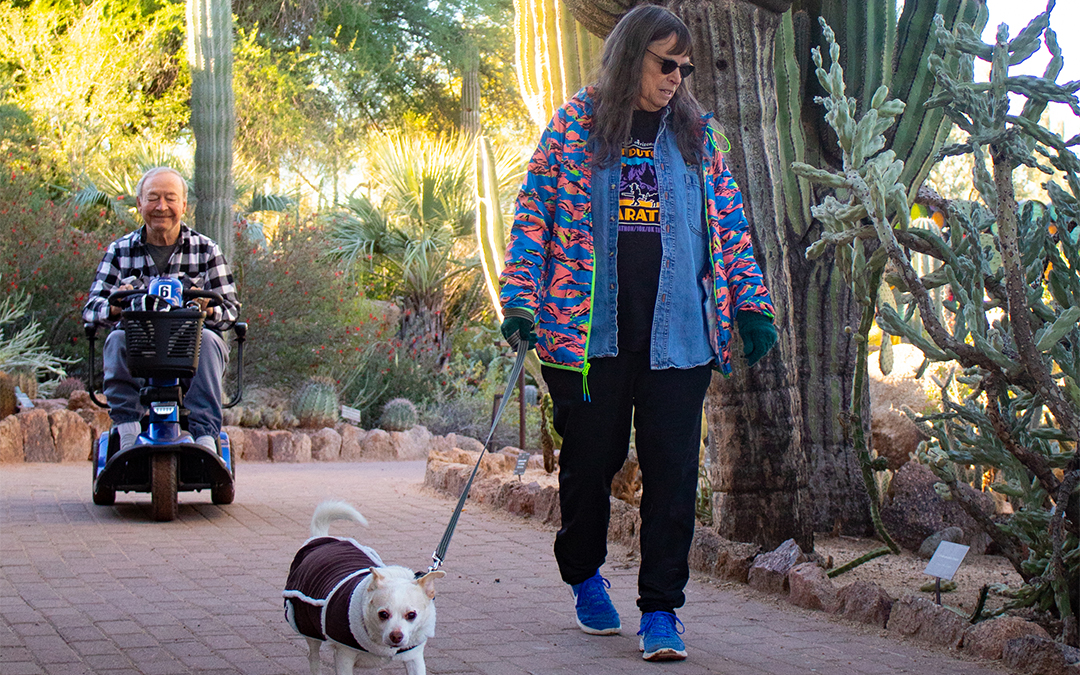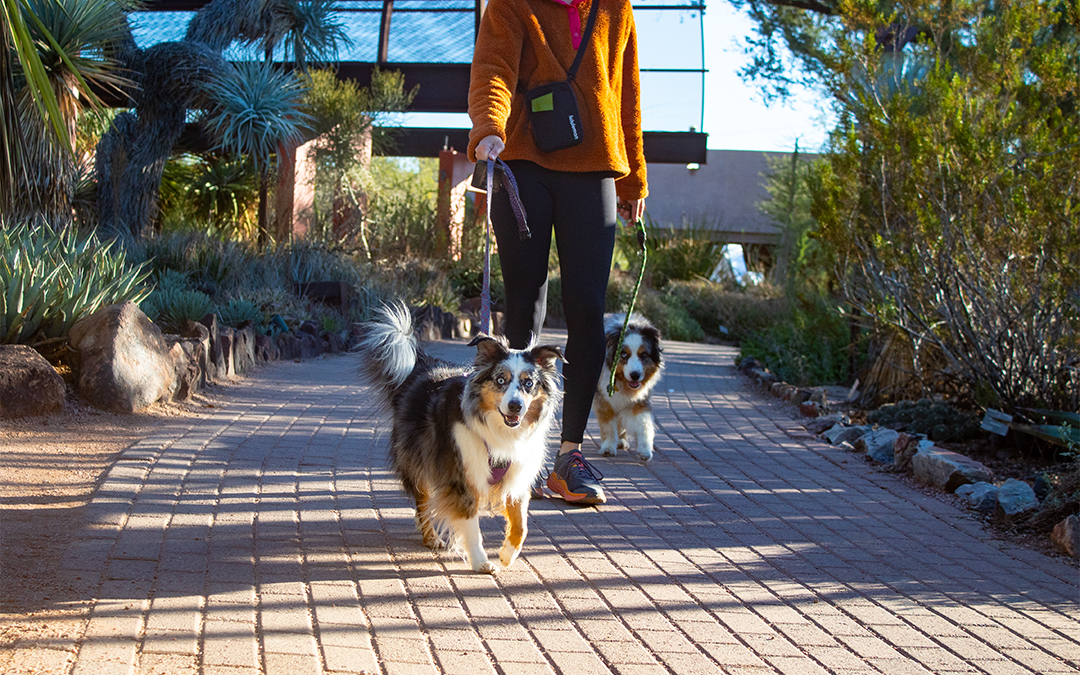
- This event has passed.
Dog Days at the Garden
DATE: May 27
TIME: 7 - 10 a.m., last dog admission at 9:30 a.m.
PRICE: Included with Garden admission or membership
Paws up for Dog Days at the Garden! Explore the trails with your pup, smell the spring wildflowers and pose for photos on Saturday mornings.
Last dog admission:
9:30 – 10 a.m. timeslot.
For the health and safety of guests and dogs, please note the following:
- Stay hydrated! Water fountains and refill stations are located throughout the Garden.
- Clean up after your dog and deposit bagged waste in trash receptacles.
- Dogs must be on a leash, licensed, and up-to-date on vaccinations.
- Owners must maintain control of their dogs at all times.
- Any dogs deemed to be aggressive to humans or other dogs will be asked to leave the Garden.
- Watch those noses and paws! Be alert to cactus pieces and other debris on the trails and do not allow dogs to wander off trail.
- Be aware of your dog’s limits and monitor your pet for signs of heat stress.
Heat Advisory
- Owners should pay attention to their dog’s known heat tolerance. Dogs with heavy coats or low heat tolerance may want to visit another day.
- Rangers will be present and alert on the trails to make sure that our dog guests are doing okay.
- Do you have dog booties/socks or a pet stroller? Feel free to bring them to the Garden.
Tips to keep your dog safe in our warm desert climate:
- Don’t leave your pets in a parked car | Just don’t do it, not even for a minute. When it’s 72 degrees outside, the temperature in your car can get up to 116 degrees within an hour.
- Limit exercise on hot days | On hot days, limit exercise to the early morning or evening hours. This can be a good way to avoid burning your dog’s paws on the hot asphalt.
- Watch those paws | Much like human feet, dogs’ footpads can burn on concrete, especially during an Arizona summer. The best rule of them is that if it’s too hot for you, it’s too hot for them. Use the back of your hand or bottom of your foot to test the ground, especially around midday. Dog booties and socks can help protect against the hot ground.
- Provide ample shade and water | Trees and tarps will give you plenty of shade without obstructing air flow.
- Look for signs of heat stress | Heavy panting, glazed eyes, a rapid pulse, a staggering gait, vomiting or a deep red or purple tongue are signs that your pet is overheated.
Here’s what to do if your pet is suffering from heatstroke:
- Move your pet into the shade or an air-conditioned area. Apply ice packs or cold towels to their head, neck and chest or run cool (not cold) water over them. Let them drink small amounts of cool water or lick ice cubes. Take them directly to a veterinarian.
- Watch the humidity | When the monsoon rolls around in June, remember that humidity can affect your pet as well as heat. Because animals pant to cool off, they may be unable to cool themselves if the humidity is too high.
- Don’t rely on a fan | Fans don’t cool off pets as effectively as they do people because they respond differently to heat.
YOU MIGHT ALSO LIKE
Light Bloom
Oct 12, 2024 - Jan 20, 2025
LIGHT BLOOM by HYBYCOZO is a limited-time exhibit where nature and light converge. This mesmerizing display invites you to explore the Garden transformed by stunning geometric light installations that illuminate the beauty of the desert landscape in a new way.
The Leaf Connection
Now through Aug. 24, 2025
The Leaf Connection showcases the vibrant plant diversity of the Phoenix metro area through an intricate display of hand-made, ceramic leaves at Webster Center. With more than 1,000 ceramic pieces, each leaf’s design is influenced by observations community scientists record on iNaturalist, an established online platform where nature lovers share information on biodiversity.
Dog Days at the Garden
Nov. 9, 16, 23
Grab your pup and a leash and hit the trails Saturday mornings. Expect a day of nature-filled adventure and irresistible photo moments.









